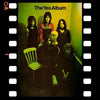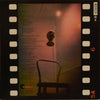



Yes - The Yes Album (2LP, Box Set, 45RPM)
[click here to see more vinyl from Yes]
John Anderson – lead vocals, percussion
Chris Squire – bass guitars, vocals
Steve Howe – electric and acoustic guitars, vachalia, vocal
Tony Kaye – piano, Hammond organ, Moog synthesizer
Bill Bruford – drums, percussion
2 LPs, Gatefold LP jackets, Box set
Original analog Master tape : YES
Heavy Press : 180g
Record color : black
Speed : 45RPM
Size : 12”
Stereo
Studio
Record Press : Rhino Entertainment Company
Label : Friday Music
Original Label : Atlantic
Recorded at 17 July 1970 at The Lyceum, London
Engineered & mixed by Eddy Offord
Produced by Yes
Remastered by Joe Reagoso
Originally released in 1971
Reissued in 2015
Tracks:
Side A :
- Yours Is No Disgrace/Yes
Side B :
- The Clap/Howe
- Starship Trooper
- Life Seeker/Anderson
- Disillusion/Squire
- Würm/Howe
Side C :
- I've Seen All Good People
- Your Move/Anderson
- All Good People/Squire
- A Venture/Anderson
Side D :
- Perpetual Change/Anderson/Squire
Reviews :
"On Yes' first two albums, Yes (1969) and Time and a Word (1970), the quintet was mostly searching for a sound on which they could build, losing one of their original members -- guitarist Peter Banks -- in the process. Their third time out proved the charm -- The Yes Album constituted a de facto second debut, introducing the sound that would carry them forward across the next decade or more. Gone are any covers of outside material, the group now working off of its own music from the ground up. A lot of the new material was actually simpler -- in linear structure, at least -- than some of what had appeared on their previous albums, but the internal dynamics of their playing had also altered radically, and much of the empty space that had been present in their earlier recordings was also filled up here -- suddenly, between new member Steve Howe's odd mix of country- and folk-based progressive guitar and the suddenly liberated bass work and drumming of Chris Squire and Bill Bruford, respectively, the group's music became extremely busy. And lead singer Jon Anderson, supported by Squire and Howe, filled whatever was left almost to overflowing. Anderson's soaring falsetto and the accompanying harmonies, attached to haunting melodies drawn from folk tunes as often as rock, applied to words seemingly derived from science fiction, and all delivered with the bravura of an operatic performance -- by the band as well as the singer -- proved a compelling mix. What's more, despite the busy-ness of their new sound, the group wasn't afraid to prove that less could sometimes be more: three of the high points were the acoustic-driven "Your Move" and "The Clap" (a superb showcase for Howe on solo acoustic guitar), and the relatively low-key "A Venture" (oddly enough, the latter was the one cut here that didn't last in the group's repertory; most of the rest, despite the competition from their subsequent work, remained in their concert set for years to come). The Yes Album did what it had to do, outselling the group's first two long-players and making the group an established presence in America where, for the first time, they began getting regular exposure on FM radio. Sad to say, the only aspect of The Yes Album that didn't last much longer was Tony Kaye on keyboards: his Hammond organ holds its own in the group's newly energized sound, and is augmented by piano and other instruments when needed, but he resisted the idea of adding the Moog synthesizer, that hot instrument of the moment, to his repertory. The band was looking for a bolder sound than the Hammond could generate, and after some initial rehearsals of material that ended up on their next album, he was dropped from the lineup, to be replaced by Rick Wakeman." AllMusic Review by Bruce Eder
Ratings :
AllMusic : 4,35 / 5 , Discogs : 4 / 5


